The Sleeping Habits of 75 Successful People
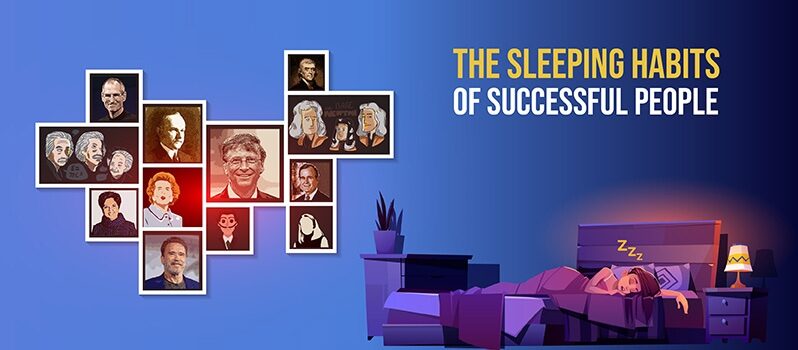
Can we learn from the sleeping habits of successful people? It is said that those who sleep enough are happy and successful – but what is enough? Donald Trump claims to sleep only 3-4 hours each day while Bill Gates sleeps at least 7 hours each night. Which of these is not successful? To some successful people sleep is a luxury, while to others it is a necessity. What is the truth – is sleep a luxury or a necessity?
In fact, sleep is extremely important to your mental and physical health. Essential repairs to your heart and circulation system take place while you are sleeping, and your brain also recovers from the day’s stresses. It is believed that sleep helps keep your immune system in good condition and can also help to fight cancer. Melatonin, a substance produced by the brain while you sleep, is believed to have powerful antioxidant properties that can help your body to prevent the cell damage that can initiate the creation of cancer cells. Sleep also consolidates what you have learned during the day into your memory.
Can you believe that some people sleep only 2-3 hours at a stretch every day? Can you believe that a French mathematician calculated the date of his death? If you are unsure, you should consider that many people have sleeping habits and sleep patterns that do not appear feasible. Here are some of the more bizarre, and fairly ordinary, sleeping habits that many famous people observe – or are forced into due to their psychology or individual beliefs.
Many well-known people are polyphasic sleepers, meaning that they get their 8 hours in a number of different sleep periods. Some sleep for just 2 hours at a time but do this at regular periods. So what is best? One straight period of 8 hours or four periods of 2 hours with 4 hours between each 2 hour period. They both total 8 hours of sleep! That latter is known as polyphasic sleep, and many people believe it to be more refreshing than a single period of 8 hours.
Who can say which of these two options is the better? Let’s have a look at the sleeping practices of some famous people (and some not so famous to many.) Have famous or successful people got where they are due to their sleeping habits? Do they have different sleep patterns from the rest of us! Perhaps, but perhaps not: many of the good and the great have issues with sleeping. We present below the sleeping habits of 75 people known in the worlds of entertainment, writing, science, business, and sports. There appears to be no common trend, and each person is unique in their sleeping habits.
Bill Gates: Entrepreneur and Microsoft Founder

Bill Gates believes that we should do as our ancestors: take midday naps! He stated that “It will likely improve your creativity and coronary health, as well as extend your lifetime.” He recommends keeping your naps to a maximum of 20 minutes, and taking them before 3 pm: otherwise, it could affect your sleep at night. He also believes that everybody needs 7 – 8 hours of sleep every night (in addition to the naps.)
Marissa Mayer: Businesswoman

Marissa Mayer is a businesswoman and investor who was CEO of Yahoo from July 2012 to 2017 when she stepped down after Yahoo was sold to Verizon. She sleeps just 4 – 6 hours a day while working a 130/hour week (= approx. 18.5 hours daily.) She also takes a vacation of one week every 4 months to recharge her batteries.
Martha Stewart: Businesswoman and TV personality

Martha Helen Stewart is American and was once a model. However, her drive enables her to become a successful retail businesswoman and TV personality. A former model, she was the founder of Martha Stewart Living Omnimedia, a diversified media and merchandising company, Martha had a lot on her mind. She claims to get by on just 4 hours of sleep every night. She apparently does not have the time to sleep more, but does when she can.
Mark Zuckerberg: Facebook CEO and Originator

Mark Zuckerberg is one of the more normal internet entrepreneurs where sleep is concerned. Mark wakes up at around 8 am every day and sleeps at normal times: he gets 7 – 8 hours of sleep each day and has no specific sleeping habits. So not all successful people need bizarre sleeping habits to achieve their success: Mark has the same sleeping habits as normal people. He goes to bed when tired and gets up around 7 -8 hours afterward.
Oprah Winfrey: Media and Business Mogul

In order to become as successful in the media as Oprah Winfrey, you would certainly need lots of restful sleep. In an interview for Harper’s Bazaar, she confessed to having a relaxing bath every evening. In fact, Oprah’s bath is a ritual to her. She stated in the interview that she has lots of different bath oils, bath salts, bubble baths, and beads to help her relax and get the rest she needs.
Richard Branson: Entrepreneur and Businessman

Richard Branson, founder of the Virgin Group that started with Virgin Records and then Virgin Airline, is also a British adventurer and philanthropist. He generally sleeps for around 5 – 6 hours each day, roughly from midnight to 5 am or 6 am. He is extremely busy and needs every one of his waking hours to run his few hundred companies.
Jeff Bezos: Entrepreneur and Amazon Founder

Jeff Bezos, founder, and CEO of Amazon is clear that 8 hours of sleep each night enables him to make the difficult decisions he has to make on a daily basis. He tries hard “to make it a priority” he stated to Thrive Global in 2016. He is still successful so it must work for him. 8 Hours of sleep is considered normal by most of the population.
Julie Smolyansky: Head of Lifeway Foods

Julie Smolyansky took over the health foods company LifeWay Foods when her father, Michael Smolyansky, died in 2002. She was 27 years old at the time, and the youngest CEO of any publicly trading firm at the time. She slept just 4 hours each night and, with help from her brother, increased the company’s revenue by $118 million to $130 million from the $12 million revenue when she took over.
Tom Ford: Businessman and Fashion designer

When Tom Ford landed the job of Gucci design director, Gucci’s value eventually increased by 90%. He states that this is due to his energy, not talent. It may also have had something to do with hard work since he sleeps for only 3 hours each night.
Steve Jobs: Entrepreneur and Apple Founder

Like most entrepreneurs, Steve Jobs does not get the recommended 8-hour sleep a night. He is not far off though, with 6-7 hours a night. Steve typically takes a walk and meditates before going to bed between 11 pm and midnight, and wakes up faithfully at 6 am. He then dresses in the same outfit each morning: a black turtleneck and jeans, then immediately begins work.
Jack Dorsey: Twitter Founder and Square CEO

Twitter’s CEO, Jack Dorsey, meditates for two hours each day: one hour in the morning and one in the evening. He tries to sleep to exactly 7 hours each day and wears an Oura ring to measure the quality of his sleep. It also lets him know how much REM sleep he gets as well as recovery speed and his daily activity. He tries to maintain a consistent sleep schedule, which he believes maximizes REM sleep. Business journalist KaraSwisher reported that he spent 10 hours a day at Twitter and the same each day at Square. This leaves him just 4 -8 hours for sleeping.
Sallie Krawcheck: Ellevest CEO

Sallie Krawcheck is the manager of Ellevest, a digital investment platform for women. She does not generally work after 8 pm and spends the evening socializing or being with her children before she retires to bed. She always tries to be up early and have a breakfast of a Power bar and coffee by 4 am. She believes that is the time she carries out her most ‘unguarded thinking’ and the best time to get work done.
Indra Nooyi: CEO of PepsiCo 2007 – 2018

Indra Nooyi worked as a receptionist between 12 am and 5 am when she was studying at Yale. After she was promoted to CEO of PepsiCo she slept 4-5 hours each night to be able to work her alleged 130 hour week. Her hours as a receptionist helped Indra to adapt to her sleeping routine.
Tim Cook: Apple CEO

Apple’s Chief Executive, Tim Cook, is generally a very private person. Various sources state his wake-up time to be sometime between 3.45 am and 4.30 am. When most people are still fast sleep Tim Cook is already up and checking his emails. He also spends the early hours reading Apple user comments, so that he already has all this important information when others are still in bed sleeping.
Arianna Huffington: Co-founder of the Huffington Post

Arianna Huffington sleeps 8 hours each night. Irrespective of what time she goes to bed, she avoids caffeine from 2 pm, switches off all electronic devices 30 minutes before sleep time, takes a hot bath with Epsom salts and lavender oil, and she likes to keep her bedroom dark and cool. She charges her devices overnight way from the bedroom, and her bed has a canopy. Arianna’s bedroom is fitted with blackout curtains and she goes to bed wearing only clothes intended for sleep. She pulls herself to sleep with a poetry book or a book on philosophy. She also believes that the more sleep a woman has, the more likely it is for her to have sex with her partner.
Sergio Marchionne: CEO of Fiat

Sergio Marchionne was CEO of Fiat until his death aged 66 in 2018. He turned Fiat around on just 4 hours of sleep each night. Alex Taylor at Fortune states that he worked practically day in day out, with just 4 hours sleep fuelled by coffee and cigarettes He died after a shoulder operation that went wrong.
Matt Mullenweg: Entrepreneur and Creator of WordPress

Matt Mullenweg follows the ‘Uberman’ sleeping method. He sleeps for six 40-minute sessions each day, amounting to 4 hours sleep a day with just 2½ hours between naps. This schedule doesn’t appear to damage his thinking since he has made a fortune with his blogging software, WordPress.
Rand Fishkin: Businessman, Co-founder of Moz and Founder of SparkToro

Rand Fishkin founded the SO and online marketing tools company Moz along with Gillian Muessig. He proved that sleep does not have to be sacrificed to be successful by sleeping 8 hours a day.
Jimmy Wales: Founder of Wikipedia

Jimmy Wales sleeps 8 hours almost every night, but fits in an hour or so longer when possible. He believes that young budding entrepreneurs make a mistake when they deprive themselves of sleep in order to achieve success. On the contrary, he believes that sleep deprivation “makes you stupid”. He believes that the biggest impact on his sleep “has been children, not work.”
Albert Einstein: Physicist

This mathematical and physics genius seemed to break the mold by sleeping for an average of 10 hours at night and also took naps during the day. He believed that sleep refreshed the brain, enabling him to think better.
Isaac Newton: Scientist – Mathematician and Astronomer
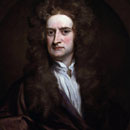
Isaac Newton is known for his three laws of motion. Like many famous scientists, he did not spend much time sleeping. He would typically sleep around 3 – 4 hours a night. He frequently missed sleep for days when he was working on a difficult problem, and as a result, often suffered from exhaustion.
Thomas Edison: Inventor
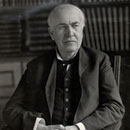
Thomas Edison, the American inventor who brought electric light to our homes often needed only 5 hours of sleep, from 11 pm to 4 am. He regarded sleep as being a heritage from our caveman days. He often worked without sleep to solve a problem or complete an invention, and then would sleep for up to a day or more. He believed his most imaginative thinking took place at night when most others were at sleep.
Alexander Graham Bell: Inventor

Alexander Graham Bell, born in Scotland, moved to Canada and then Boston in 1871 to teach at the Boston School for Deaf Mutes. He also taught deaf people in Northampton Massachusetts and then in Hartford Connecticut. He worked on Improving Thomas Edison’s telegraph system which ultimately led him to invent the first workable telephone. He worked during the night from about 9 pm or 10 pm to between 4 or 5 in the morning. He slept for around 4 – 6 hours between these times during the day.
Marie Curie: Nobel Prize-Winning Scientist

Marie Curie, who was awarded the Nobel Prize for Physics along with her husband Pierre for their work on radioactivity, discovered the radioactive elements radium and polonium. She slept with a jar of radium by her bedside, an element that caused the pernicious anemia that ultimately killed her. Her daughter Irene, also a Nobel Prize winner, died from leukemia, again due to radioactivity. Her husband died after being run down by a horse and cart.
Leonardo Da Vinci: Artist and Scientist

Leonardo da Vinci used a sleep pattern that is today known as the Uberman sleep cycle. This involves 20-minute naps taken every 4 hours. It amounts to just 2 hours of sleep a day. He believed that it gave him more awake time to help his creativity and his work. This appears to be a very unnatural sleeping pattern which prevents the individual from attaining the deepest phase of sleep, although it seemed not to harm his creativity.
Sigmund Freud: Neurologist

The founder of psychoanalysis went to bed at 1 am and woke at 7 am. It is unknown whether or not his work on the interpretation of dreams was based on personal experience.
Buckminster Fuller: Architect, Author and Inventor
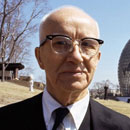
Buckminster Fuller came up with many architectural designs and inventions. He was particularly drawn to the hemispheric structures now known as geodesic domes. These were originally designed by the chief engineer of Carl Zeiss, Walther Bauersfeld. The structures are the basis of the geodesic domes constructed for Expo 67 at Montreal and the Eden Project in Cornwall in the UK – plus many more. It was Fuller who first named such domes ‘geodesic.’ He was the first to use what is known as ‘polyphasic sleep’, taking half-hour naps every 6 hours. This results in just 2 hours of sleep a day, but it seemed to do him no harm.
Benjamin Franklin: Writer, Inventor and Polymath

Benjamin Franklin slept for 6 – 7 hours from 10 pm to either 4 am or 5 am according to which source you use. The myth that when he found it difficult to sleep he would run into a wall and knock himself unconscious into REM sleep is just that – a myth. In the evening, he would consider what good he had done that day, and then sleep: from 10 – 4 according to his diary.
Burrhus Frederic Skinner: Psychologist
Burrhus Frederic Skinner designed his own sleeping environment. He slept in his office in a yellow plastic tank that could accommodate a mattress. He went to bed at 10 pm and slept for 3 hours. He then got up to his desk which was situated nearby and worked for an hour. He then went back to bed and slept for a further 3 hours. He had a system of timers and alarms that would wake him up to work from 1 am to 2 am (just one hour-though some say from midnight to 1 am) and again from 5 am to 7.
Nikola Tesla: Mechanical and Electrical Engineer and Inventor
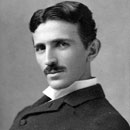
Nikola Tesla is best known for the development of AC electricity, although he also worked on several revolutionary concepts in the fields of mechanical and electrical engineering. Tesla had a curious sleeping habit – he slept only 2 hours at a time! However, he did this regularly throughout the day! It is believed that he got this habit because he suffered from horrible nightmares as a child. He claims never to have slept for more than 2 hours at a time! He is said to have commented: “I do not think there is any thrill that can go through the human heart like that felt by the inventor as he sees some creation of the brain unfolding to success … Such emotions make a man forget food, sleep, friends, love, everything,”
Abraham de Moivre: Mathematician
Abraham de Moivre was an 18th-century French mathematician who invented the theory of probability and used his analysis of his own sleeping habits to predict his death. He analyzed his sleeping habits and calculated that he would die on the 27th of November, 1754. He did die on that day!
Florence Nightingale: Statistician and Nurse

Florence Nightingale was a very light sleeper, who required only 4 hours of sleep every night. However, when she believed the hospital was responsible for the deaths of many soldiers, she confined herself to bed until she died 37 years later. In fact, her belief was wrong!
Voltaire: Philosopher and Historian
Voltaire in the pen name of François-Marie Arouet who is reputed to have drunk 40 cups of coffee a day. Little wonder he did not sleep a lot! He slept very poorly, averaging around 4 hours a night.
Tom Cruise: Actor

Tom Cruise is a terrible snorer, so bad that he has to isolate himself from everybody else when sleeping. He has had a professional ‘snoratorium’ built to isolate his snoring from everyone else. It is said to have been a nursery room once, very small and dark, but comfortable enough to help him sleep.
Maria Carey: Singer

Mariah Carey has to sleep for 15 hours each day. In her own words, she must sleep so long “to sing the way I do” she told Interview Magazine in 2007. She said she sleeps with 20 humidifiers in her bedroom to provide more moisture to the air and soothe her sore throat caused by singing.
Eminem (Marshall Mathers III): Rapper

Eminem, who is known to have suffered issues with sleeping, is reputed to cover his windows with aluminum foil. He does this no matter where he is in the world. He reckons this blocks out the sunlight to help him get to sleep. He also plays white noise to help him get some sleep.
W.C. Fields: Actor, Comedian and Writer
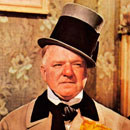
W.C. Fields had many talents. You have to in order to be such a successful actor and comedian. However, he found getting to sleep extremely difficult. Eventually, he discovered that the sound of rain falling helped him get to sleep. This gave him the idea of setting up a sprinkler to hit against an umbrella. This worked well for him.
Kelly Clarkson: Singer and Songwriter

Kelly Clarkson finds it difficult to get to sleep because she often got an idea for a new song in bed. She felt she had to write the tune and lyrics down before going to sleep, which is why she had “a hard time sleeping” in her own words. She confessed that is it a very difficult habit to get out of.
Arnold Schwarzenegger: Actor

Arnie has a strict sleep regime: he sleeps for just 6 hours each night and likes a mid-afternoon nap. Once again, naps appear to be an important part of many people’s lives. They appear to work for many people who sleep less than 8 hours each night, but not for everybody.
Ellen DeGeneres: Comedian, Actress and Talk Show Host

Ellen DeGeneres sleeps 8 hours a day from around 11 pm to 7 am. Unlike many other personalities, she gets a solid 8 hours a night.
Tallulah Bankhead: Actress
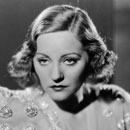
Tallulah Bankhead is known for her comment that “Cocaine isn’t habit-forming and I know because I’ve been taking it for years.” She was also a long-time insomniac. She eventually found a solution that involved hiring gay caddies to sit beside her in bed and hold her hand until she fell asleep.
Lady Gaga: Singer

Lady Gaga once arrived for the 2011 Grammys in an egg-like contraption. According to the Daily Mirror, Lady Gaga allegedly made a plan to replace the bed in her New York apartment with that egg! Apparently, it is said, she was so comfortable in the egg on stage that she decided to take it home and use it to meditate and sleep in!
Madonna: Singer

Madonna suffers from insomnia and has suffered the condition for many years. Nevertheless, she manages to sleep around 4 hours each night, largely due to the medication she takes to treat her condition.
Jimmy Kimmel: TV Personality and Comedian

Jimmy Kimmel suffers from narcolepsy. This results in Jimmy becoming extremely sleepy during the day, and he can fall asleep suddenly without warning. He says he has fallen asleep in his car, and also at meetings for his program Jimmy Kimmel Live. Jimmy claims to have just a mild form of the condition.
George Clooney: Actor

George Clooney suffers from insomnia. He says it makes it difficult for him to get to sleep at night, and causes him to wake up many times during the night. He needs to have the TV on to get to sleep, and it is unusual for him to get a good night’s sleep.
Jessica Simpson: Singer and Actress

Jessica suffers from psychophysiological insomnia, and she finds it impossible to get to sleep in her bed. However, she claims that lying on the floor helps her to sleep. She said to showbizspy.com “It’s more of a mental thing. I tell myself, ‘I cannot fall asleep, there’s no way if I get into bed right now I’m gonna fall asleep. I end up just laying on the floor and falling asleep.”
Thomas Jefferson: US President

Thomas Jefferson, third president of the USA generally slept in a reclined position for 5-8 hours each day, but not always at the same time. He was in the habit of reading for a half-hour before sleep, and if he missed any sleep he would make for it in naps later in the day. He would schedule his reading in advance, and always woke up at the same time.
Calvin Coolidge: US President

Calvin Coolidge is said to have got more sleep than any other president in the White House. Each night, he slept a full 8 hours plus 2 or 3 hours naps in the afternoon.
John F. Kennedy: US President

John F. Kennedy ate his lunch in bed after a mid-morning swim and some exercise. He then took a nap. He asked his valet to close the drapes, and not to disturb unless it was a genuine emergency. After a mid-morning stint of swimming and exercise, John F. Kennedy would eat his lunch in bed and then settle down for a nap of 1 – 2 hours. He would have his valet draw the drapes and ask not to be disturbed unless it was a true emergency. He would then quickly fall asleep for a 1-2 hour nap.
Lyndon B. Johnson: US President
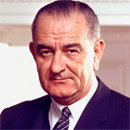
Lyndon B Johnson was also a napper. He went to sleep at midnight and woke up at 6.30 am. He would then nap daily after lunch. Taking naps can boost energy, speed of thought, and alertness, which many famous people have found out.
Donald Trump: Businessman and US President

Donald Trump doesn’t waste much time sleeping. According to him, he generally has to work until midnight or even to 1 am. He then sleeps around 3 to 4 hours each night and is ready to go again at 5 in the morning. He says that he had been following this schedule since way before he became president. He says that he can compete better and accomplish more than those that sleep two or three times as much as he does.
George H.W. Bush: US President

According to live-in White House staff, George H.W. Bush sleeps for only 2 hours each night: from 2 am to 4 am. However, he also napped during the day when convenient. He would get some sleep while traveling.
George W. Bush: US President

George Bush junior slept a lot – more than most presidents before him. He would get around 9 hours of sleep each night – usually from 9 pm to 6 am. He stated that this is because he had a schedule that is “tight but efficient.”
Narendra Modi: Indian Prime Minister

Narendra Modi has very little sleep. He has stated that he sleeps only 3.5 hours/day. He stated in 2011 that he gets a night of very sound sleep, and falls asleep within 30 seconds of going to bed. He uses Yoga and the breathing exercise pranayama to stay awake.
Barrack Obama: US President

Barrack Obama states that he stays up until around 2 am to work and read briefings. He sleeps almost 5 hours each night, and his White House staffers say they would receive conference calls at 11 pm and his office frequently gets emails at 1 am.
Winston Churchill: Author and UK Prime Minister

Sir Winston Churchill led the UK through the Second World War. He was a workaholic who slept around 6 hours each night which was supplemented with a 1.5 to 2-hour power nap at 5 pm (after a glass of whiskey and soda) in a bed installed in the Houses of Parliament. These habits averaged out at around 8 hours of sleep a day – so Churchill slept well! He was also a journalist and revered author in his lifetime and was awarded the 1953 Nobel Prize for Literature.
Napoleon Bonaparte: French Emperor

Napoleon suffered from insomnia and slept little. He would typically sleep between midnight and 2 am and again between 5 am and 7 am. This accounted for just 4 hours, although he did nap a lot. When he felt tired, he would be re-energized after a 30 min nap.
Silvio Berlusconi: Former Italian Prime Minister and MEP
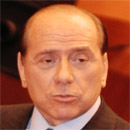
Silvio Berlusconi claims to require just 2-4 hours each night. This does not seem much but, since he claims to sleep with 8 women in one night, perhaps he does not need (or get) much sleep.
Margaret Thatcher: Politician and UK Prime Minister

Margaret Thatcher had a formidable reputation, and a large part of this could be due to her sleeping habits. She slept very little, professing that she slept just 4 hours each night. It is reputed that she made her official remain awake and work until 2 or 3 in the morning, then rise again at 5 am to carry on working. John Campbell, her biographer, believed that her sleeping schedule made her one of the most informed people at her meetings.
Condoleeza Rice: Former US Secretary of State

During her tenure as Secretary of State during George W. Bush’s presidency, Condoleeza Rice made sure that she got up at 4.30 am to visit the gym. She made sure of this no matter where she was at the time.
Stanley McChrystal: Former US General

Stanley McChrystal, former general of the US and NATO troops in Afghanistan is said to have taken a run of 7 – 8 miles daily, then eat just one meal (dinner) a day after finishing his daily work at around 8.00 and 8.30 pm. He also slept for just 4 hours each night.
Joe Biden: President of the USA

Joe Biden’s sleep habits are not on public record, and his sleeping habits are probably normal. However, there is a video that apparently shows him asleep during a live stream with Hilary Clinton. In fact, it was proven to be a mash-up of a live TV clip from 2011 showing Harry Belafonte appearing to fall asleep and a video of Hilary Clinton’s August 28 endorsement when Biden was shown looking downwards. This is likely the source of Donald Trump’s ‘Sleepy Joe’ nickname for Biden.
Salvador Dali: Artist
Artists Salvador Dali, famous for his surrealist paintings took advantage of a state known as hypnagogia. This is a phase that is sleep between sleeping and wakefulness. He believed that resting in this state gave him the surrealist images he used in his work, such as melting clocks. He instigated this state by holding a key in his hand over a metal plate, and just prior to him drifting into a proper sleep, the key would drop and wake him up. In this way, he would remain in a half-sleep state for around 15 minutes at a time.
Vincent Van Gogh: Artist

Van Gogh is said to have frequently suffered from nightmares and hallucinations but also claimed to suffer from insomnia. It is said that he could not sleep for three weeks after being diagnosed with a sexually transmitted disease (gonorrhea). He tried to overcome his lack of sleep by dowsing his pillow and his mattress with camphor. This is said to have slowly poisoned him and was a factor that allegedly led him to commit suicide.
Charles Dickens: Author

Charles Dickens did not sleep well, but he always had his bed facing north. He also preferred to sit facing north while writing. He believed that he was more creative in his writing when he faced that way. It may not have helped him much because Charles Dickens suffered from insomnia.
Jack Kerouac: Author
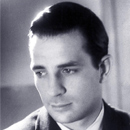
Hard-drinking Jack Kerouac, author of On The Road was a late riser. He did not get out of bed until well into the afternoon. He immediately needed a drink, and as a result, he was unable to write for days on end. In order to get his writing done, he was a frequent user of Benzedrine and tended to write in bursts and starts that often lasted for days, or even weeks until his death in 1969, aged 47.
Mary Shelley: Author
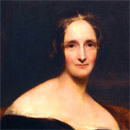
Mary Shelley, author of Frankenstein: A Modern Prometheus suffered from parasomnia, known commonly as sleep paralysis. In this condition, her mind was conscious, but her body couldn’t move, so she could experience (see, hear, and feel) terrifying things. It is believed this is how she created her character of Frankenstein’s ‘monster’.
Stephen King: Science Fiction Writer

In Lisa Rogak’s book Haunted Heart: The Life and Times of Stephen King it is stated that Stephen King brushes his teeth, then washes his hands every night before retiring to bed. He must also have his pillows with the open side of the pillowcase ‘pointed to the other side of the bed’.
Emily Bronte: Author

Emily Bronte, best known for her only work, Wuthering Heights, always found it difficult to sleep. She would walk in circles around her dining room table until she was tired enough to go to sleep. It is also believed that her sister Charlotte Bronte, who wrote Jane Eyre, Shirley, and Villette, had similar sleeping problems and followed a similar routine to Emily.
Honoré de Balzac: Author

The vast amounts of coffee this French writer habitually drank may have influenced his sleeping habits. He would sleep from 6 pm to 1 am and then nap from 8 am to 9.30 am. He would write in between these hours.
William Shakespeare: Playwright and Poet

Shakespeare did not sleep well and had a tendency to insomnia. As he wrote in The Tempest, “We are such stuff as dreams are made on, and our little life is rounded with a sleep.” His financial situation was tenuous at best, and this may have led to his lack of sleep. Much of his work dwelt on sleep and dreams. Read these letters written in the 17th century regarding Shakespeare’s financial situation.
Franz Kafka: Novelist and Dystopian Writer
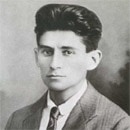
Franz Kafka, famous for his work The Metamorphosis, The Trial, and The Judgment, was a chronic insomniac. He worked from 8.30 am to 2.30 pm each day at an insurance institute, after which he had lunch then slept until 7.30 pm. After a few exercises and dinner with his family, he started writing from 11 pm till between 1 am and 3 am. He then tried to get some sleep but was often unable to do so. He looked upon his insomnia as a sickness of the soul and seemed to be permanently in a state of collapse.
Phillip Larkin: Poet
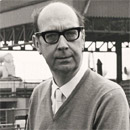
Phillip Larkin often wrote about his sleepless nights. He would frequently stay up all night, drinking martinis and listening to jazz albums. His poem Aubade faces his sleeping issues and dread of the Sleep of Death: “Waking at four to soundless dark, I stare. In time the curtain-edges will grow light. Till then I see what’s always there: Unresting death, a whole day nearer now…”
Voltaire (François-Marie Arouet): Philosopher and Writer

Voltaire, the 18th French philosopher, and the writer did not sleep well at night. He was lucky if he got 4 hours a night. This was likely because he drank up to 40 cups of coffee a day. Perhaps the effect of caffeine on sleep was unknown in 18th century France.
Michael Phelps: Olympic Swimmer

Michael Phelps needs a lot of good, solid sleep. In order to maintain his swimming fitness and style, he has to carry out numerous training sessions. To enable his training to help him maintain peak fitness, Michael Phelps makes sure that he gets plenty of good, restful sleep. To achieve this for the 2012 Olympics, he slept in a chamber with air at a pressure similar to that at an altitude of around 8,500 to 9,000 ft. Sleeping at this altitude enabled his body to generate large numbers of red blood cells to feed his muscles with oxygen. He described his sleeping accommodation as a “large box.” You don’t win 28 Olympic medals in a career without sleeping well.
Shaquille O’Neal: Sportsman
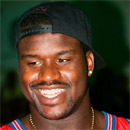
Shaquille O’Neal, former pro basketball player and now a sports analyst, suffers from sleep apnea and snoring. Both of these can give rise to the risk of heart disease, and also affects an athlete’s performance. He achieved a cure for his snoring by referring to a sports medic. He uses a snoring mouthpiece which prevents his tongue from falling back and blocking his airway. He says that he sleeps more easily now and feels better for it.
This is #75 on our list. The sleeping habits of birds and animals can often reflect their need to stay safe. Ducks tend to sleep in a row or rows depending on the number of ducks. The two ducks on the outside of each row sleep with one eye open so they can be aware of the danger, while the rest of the ducks sleep with both eyes closed – unless one of the outside ducks calls the alarm.
One factor that is common to all of these people is that they are or were successful in their chosen paths. The evidence regarding sleep and the quality of that sleep is powerful, and it is unlikely that these people could have achieved what they did without high quality sleep. Think of yourself sleeping only between midnight and 5 am every day – would you be working at your best?
It is not just hours of sleep that is important, but the quality of that sleep. Even if you can only sleep for 4-6 hours each night, you will get a better quality of sleep on a comfortable mattress with good support. Even just a few hours of good quality sleep can help you overcome many of these side effects that are associated with insufficient sleep. You are better with 5 hours sleep on a comfortable mattress than tossing and turning for 8 or 9 hours on a lumpy mattress, or one that is too hard or heats you up too much.
Since sleep is right up there with nutrition and exercise in terms of its role in health, make sure to give it the attention it deserves. If you can’t get as many hours as you need at night, it’s totally legit to take a nap, and many experts even recommend it. Here are some more healthy sleep tips from the National Sleep Foundation.
Keep Reading: 10 Mattress Myths You Should Ignore Right Now »
It is obvious from the above information that sleep is important for success. However, not all successful people follow the same sleep patterns. It is fairly obvious that you don’t achieve the success of those above without getting enough high-quality sleep.
Sleep is important for your brain to get a rest, and for your body to repair itself from the cellular damage it experiences during the day. Your body also repairs damage that it suffered during a day of work whether that is mental or physical. However – and a big, however – you need to sleep well when you do sleep, no matter whether it is a single stretch of 8 hours or more or multiple stretches of 2 hours. To sleep well, you need a good, comfortable mattress such as those that InsideBedroom offers you at very good prices.
Donald Edwards is a sleep research expert with a deep knowledge of sleep and sleeping difficulties. He is a senior writer whose expertise and compassionate approach to establishing the fundamental causes of your sleeping issues enables us to help you to get the best night’s sleep possible and wake up fully refreshed for the day to come.
Medical Disclaimer: By using the insidebedroom.com website and/or purchasing any products or services through this website, you are voluntarily agreeing to this Disclaimer. You are agreeing that you have read, understand, and consent to the terms herein.
The information and other content found on this website, or in any linked references, are not intended to be expert medical advice and should not be construed as such. No information on this site, including written text, images, graphics and any other form of information, is intended to be a substitute for professional medical advice, treatment or diagnosis, but is intended for informational purposes only. If you need any form of medical advice or information, then refer to your physician or other medical expert.
Alexander Jacques Sabucido says
These habits would be a big help for those who are struggling from having enough sleep.
Khaja says
Awesome collection.!!
Helps a lot to design my own pattern.